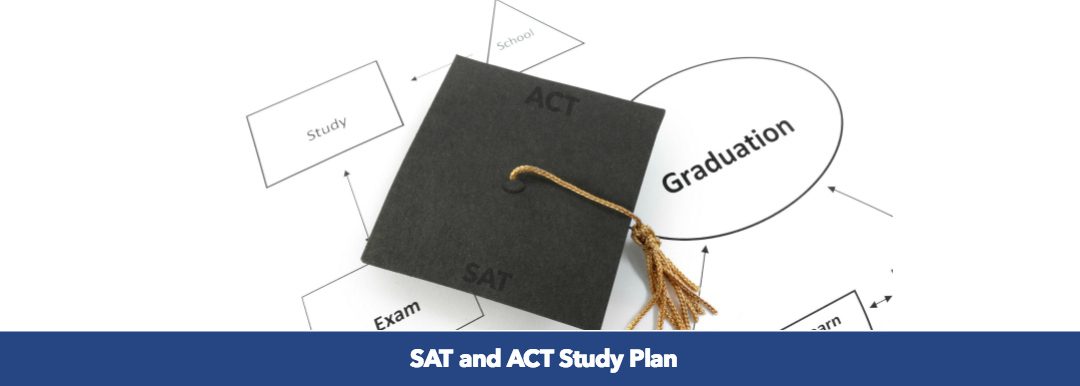Have you ever wondered if you should study for the SAT or ACT test? The answer is yes! Studying two to three hours a week, three months before taking the test can increase your SAT score by 100+ points and your ACT score by 3+ points. But before cracking open that SAT study guide or ACT practice test, make sure you have a study plan in place.
First, determine when you will take the test and how much time you have to prepare. It’s best to start studying at least 8-12 weeks before the test date. Then, define your target score and identify your academic strengths and weaknesses, specifically in math, reading, writing, and science, by taking a full length practice SAT and ACT. You’ll spend the majority of study time on your weaker subjects. Instead of cramming a two-hour study session in once a week, try studying 30 minutes a day five to six days a week.
Divide your homework between timed and untimed assignments using the tips below to get the most out of your studies. Timed assignments are important to help you practice pacing and test-taking techniques. Untimed work is an opportunity to review the content that is covered on the SAT or ACT.
Timed Assignments:
- Use practice tests from real SATs or ACTs, such as those found on College Board’s website.
- Sit in a quiet room where you will not be disturbed during the entire timed session. Turn off cell phones and any other disturbances.
- Set a timer before starting the section.
- Work on test-taking techniques, such as process of elimination, skipping difficult questions to come back to, time management, etc.
Un-timed Assignments:
- When working on an un-timed assignment the goal is to increase your understanding of the concepts being covered.
- Take your time and answer every question assigned.
- Use notes and the content section of the SAT or ACT study guide to answer questions that stump you.
After you have completed a timed or un-timed assignment, check your answers carefully. Answers for every section can be found at the end of that test. Review answer explanations to the questions you answered incorrectly and don’t be discouraged when you choose the wrong answer. Stay positive and don’t give up!
Wondering what materials to use to prepare? Don’t miss our Guide to SAT Prep Books.

